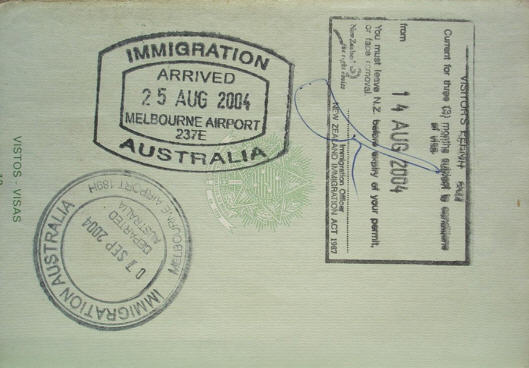The fallacy of 'temporary' visas

01 August 2013
Dr Timothy Gassin - Oz Kiwi
There is no actual distinction between a pre- or post-2001 Special Category Visa (SCV) - they are exactly the same visa. The 'Protected Special Category Visa' and 'Non-Protected Special Category Visa' that are often mentioned simply do not exist. In fact, the date the visa was issued makes practically no difference at all, as an SCV expires every time an NZ citizen leaves the country and a new one is issued every time they arrive.
For example, if you settled in Australia for the first time on 28 February 2001 and had never left the country since, you would hold a 15 year old SCV, but still be considered 'non-protected' and treated as a temporary visitor. However, if you arrived on 25 February 2001 and had left the country annually you would have an SCV less than one year old, but be considered 'protected' and treated as a permanent resident.
The 'non-protected' and 'protected' statuses are tied to individuals not visas and were only ever supposed to be applied in a limited number of areas of social security law. It was always dubious to treat those holding exactly the same visa differently in such an arbitrary manner, but Australian governments have since thought fit to extend this arbitrary distinction found nowhere in migration law to an increasing number of fields, gradually stripping post-2001 arrivals of their rights.
The SCV was created in 1994 purely as a matter of convenience, as at this time the Australian Government introduced a requirement that all non-citizens hold visas. This arrangement of issuing temporary visas to NZ citizens made much sense as it allowed existing free-movement arrangements to continue, whilst ensuring policy consistency. No distinction would need to be drawn between NZ citizens visiting Australia or settling there, just as there had been no distinction when no visas were required.
The visa may have been temporary in the sense that it expired every time an NZ citizen left the country, but was supposed to allow the continuation of the situation in which NZ citizens could freely become permanent residents of Australia.
The fact that the visa lapses every time a person leaves Australia is not, however, the reason it is officially considered 'temporary' - the Permanent Resident of Norfolk Island visa (subclass 834) similarly lapses every time its holder leaves Australia, but it is nevertheless considered a 'permanent visa'. The sole reason why a Special Category Visa is considered 'temporary' is because it is cancelled if its holder ceases to be a New Zealand citizen.
Thus, since 2001, New Zealand citizens have increasingly been treated as 'temporary' migrants on the basis that their right to reside in Australia depends on their maintaining their New Zealand citizenship. However, of course, the right of Australians to remain in Australia is equally tied to their maintaining their Australian citizenship, but they are not being treated as if they were 'temporary'.
It was never intended that this issuing of 'temporary' visas should form the justification for policies that would reduce NZ citizens from the status of permanent residents to that of temporary guest workers.